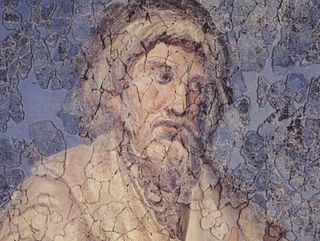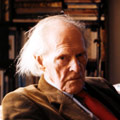A Quote by Neil deGrasse Tyson
But my vote for Venus's most peculiar feature is the presence of craters that are all relatively young and uniformly distributed over its surface. This innocuous-sounding feature implicates a single planetwide catastrophe that reset the cratering clock... turning Venus's entire surface into the American automotive dream-a totally paved planet.
Related Quotes
The reason you see so many volcanoes on Venus is partly due to the fact that there's virtually no erosion there. So on Venus, you're seeing features, some of which are hundreds of millions of years old on the surface. On Earth, we do not see any surface features nearly that old - you only see much more recent features.
There is good evidence that Venus once had liquid water and a much thinner atmosphere, similar to Earth billions of years ago. But today the surface of Venus is dry as a bone, hot enough to melt lead, there are clouds of sulfuric acid that reach a hundred miles high and the air is so thick it's like being 900 meters deep in the ocean.
I would like to start by emphasizing the importance of surfaces. It is at a surface where many of our most interesting and useful phenomena occur. We live for example on the surface of a planet. It is at a surface where the catalysis of chemical reactions occur. It is essentially at a surface of a plant that sunlight is converted to a sugar. In electronics, most if not all active circuit elements involve non-equilibrium phenomena occurring at surfaces. Much of biology is concerned with reactions at a surface.
My photographs don't go below the surface. They don't go below anything. They're readings of the surface. I have great faith in surfaces. A good one is full of clues. But whenever I become absorbed in the beauty of a face, in the excellence of a single feature, I feel I've lost what's really there been seduced by someone else's standard of beauty or by the sitter's own idea of the best in him. That's not usually the best. So each sitting becomes a contest.
My next project is 'Venus Vs,' which is a documentary that follows tennis star Venus Williams and her effort to get equal-award pay for women at Wimbledon. Most people don't realize that Venus fought for years to make sure women and men winners of that tennis championship received the same amount in award money.
If we imagine an observer to approach our planet from outer space, and, pushing aside the belts of red-brown clouds which obscure our atmosphere, to gaze for a whole day on the surface of the earth as it rotates beneath him, the feature, beyond all others most likely to arrest his attention would be the wedge-like outlines of the continents as they narrow away to the South.
Early in my career I discovered that there was something really special about photographing at night that places your mind on the surface of the planet. You’re no longer just a human being walking around in the regular world. You’re a human animal striding around on the surface of the planet that’s out in the middle of the galaxy. We as a culture, we’re forgetting that we are actually natural organisms and that we have this very deep connection and contact with nature. You can’t divorce civilization from nature. We totally depend on it.


































